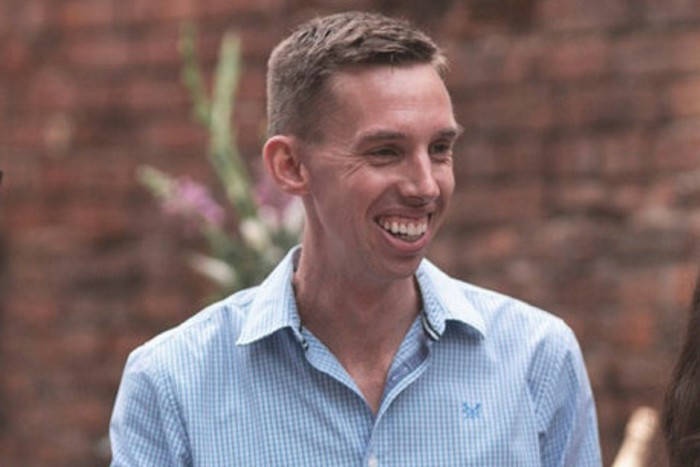[ad_1]
Tom Meredith had just arrived in London after more than a year away when Singapore revoked the re-entry pass he needed to fly home to his wife and six-year-old twin daughters.
What should have been a short business trip in May suddenly had no return date, forcing Meredith to shuffle between family and friends’ homes in the UK for weeks.Â
“I was pretty heartbroken,†the tax consultant said. “You enter that bit of shock being away from family . . . It could be an extra two weeks, two months, four months. You feel completely helpless.â€
Meredith was just one of the many expats locked out of Singapore when the city-state imposed strict travel curbs as new clusters involving aggressive Covid-19 variants emerged.
For some foreign professionals the restriction proved to be a breaking point. Frustration over travel constraints, vaccines and, perhaps most tellingly, fears over jobs have prompted expats to abandon the island for either their home countries or other financial hubs, such as Dubai.
Uncertainty over when restrictions would “come and go and not knowing what your life will be like in the next few months†contributed to a 31-year-old management consultant’s decision to move back to Portugal.

Expats younger than 40 were at the very end of the vaccination queue, with Singaporeans aged 12 to 39 given priority to reserve a jab for nearly three weeks. Bookings were opened to non-Singaporeans last week.Â
“It’s just one of many ways in which Singapore showed it’s not super friendly to expats, and that they will always prioritise their own citizens ahead of foreigners,†the consultant, who wished to remain anonymous, said.
A struggle to find work has also stoked expat anxiety. “If you’re made redundant and you’re a senior director, it’s very difficult to find something for an EP [employment pass holder, who earns at least S$4,500 ($3,340) per month],†said Richard Aldridge at Black Swan Group, a financial services recruiter.
“You have to be very flexible on what you want to stay hereâ€.Â
The employment difficulties for foreign professionals coincide with a push from Singapore to reduce its reliance on foreign labour after a Covid-19 outbreak last year ripped through crowded dormitories housing migrant workers. The labourers, who are essential to industries such as construction, account for almost 90 per cent of the city state’s caseload.Â
Josephine Teo, the then manpower minister, in March called on companies to “strengthen their Singaporean coreâ€. Last year, Singapore raised the qualifying salary for employment passes twice.
While EP holders accounted for a quarter of Black Swan’s placements in Singapore in 2019, the number in 2021 has dropped to zero. “EP is almost toxic. People with EPs are not being looked at initially . . . They’re on the back burner for two to three months,†said Aldridge.Â

Authorities said they reimposed restrictions in May to avoid large outbreaks. The ministry of trade and industry said it recognised “the impact of border measures on all, in particular those who need to travel for business or to reunite with familyâ€, adding it would work with those affected.
Restrictions are being relaxed after a fall in infections. But until next week, social gatherings will still be limited to five people and only two patrons will be allowed to dine together. Music is not allowed in restaurants to avoid people speaking loudly, which authorities say could help spread Covid.
Official statistics about expats not renewing their visas are hard to obtain but Adam Sloan, a managing director at moving company Santa Fe Relocation, said people leaving Singapore outnumbered those arriving.
“We are completely full operationally. We are trying our best to find additional slots and spaces to pack up,†Sloan said. The daily number of families Santa Fe moved out jumped from 20 last year to between 30 and 35 by June, he said.
Some expats, however, are still moving to the city-state including from Hong Kong, which has been rattled by protests, school closures and China’s imposition of a tough national security law.Â

One Hong Kong executive making the move said that “from a career perspective Singapore is far more attractive than Hong Kong. And obviously it’s safe, convenient, more affordable and is a more international city.â€
Another attraction is Singapore’s efforts to craft a coronavirus exit strategy.
Once it fully vaccinates at least half of its 5.7m population — a target set to be achieved by the end of the month — Singapore may allow social gatherings to expand to eight people and inoculated residents to attend live performances and sporting contests with larger audiences. With more than 3.7m people having received a first dose and 2.2m a second shot, it also plans to take “progressive steps†to ease travel restrictions.
Meredith finally returned to Singapore last week. But his family has considered whether they should “carry on†in the city-state. In the past few months, five friends and their families have left. For now, though, he is just “very, very glad to be homeâ€.
[ad_2]
Source link






